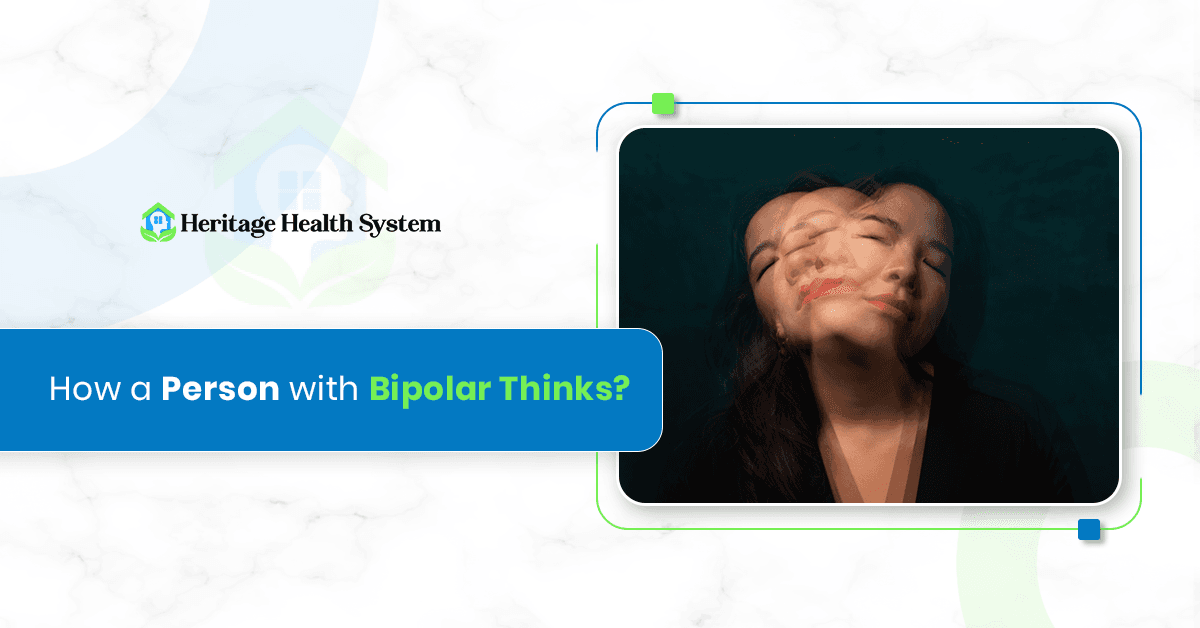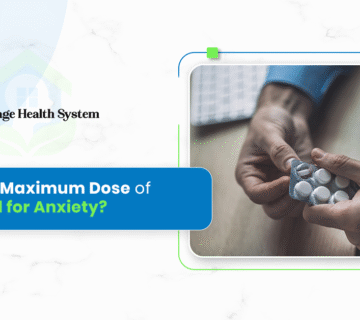Understanding the Mind Behind the Mood Swings
Any thoughts on the life of a person having bipolar disease? It’s not only having happiness one moment, then having sadness the next. Their emotional highs often come without warning, and they can be overwhelming.
For someone with bipolar disorder, one day is full of energy and ideas. The next day, heavy clouds bring fog and gloom.
These swings are not simply about being a diva and moody. It is something that is changing how one thinks, feels, and reacts. It’s something they go through every day, thus needs to be understood, not judged.
Bipolar Meaning: What Does It Mean to Be Bipolar?
Living with bipolar disorder is like riding an emotional roller coaster. Some days, energy flows through you. You might not care about control. Big ideas fill your mind, and your confidence soars.
Some days, you may feel powerless and burdened. It can feel like you’re being pulled into a deep sadness.
This is not a simple bad hair day or momentary being short-tempered. Bipolar disorder changes how people see reality. It impacts sleep, decision-making, and relationships.
These high and low states can sneak up on you. It doesn’t just affect the one living with this illness; it affects everyone else close by.
What Are Symptoms of Bipolar Disorder?
Recognizing the symptoms of bipolar disorder helps us better understand how the mind reacts during episodes. Here are some signs that may point to bipolar disorder:
- Sudden bursts of energy
- Impulsive behavior and risky choices
- Sleeplessness during manic highs
- Sadness, guilt, and lack of interest during depressive episodes
- Strong mood shifts that feel hard to control
Wondering how to tell if someone has bipolar? Look for extremes—moments where their behavior seems out of line with the situation, not just everyday mood changes.
Mania and Depression: How the Bipolar Mind Shifts
Manic Thinking
During manic phases, bipolar decision making speeds up. The person might feel invincible, spend recklessly, or make big life changes on a whim. Thoughts come quickly, and they may talk fast or jump between ideas.
People often ask: do bipolar people know they are manic? The truth is, not always. Some are self-aware, while others lose touch with how intense they’re acting.
This is why many wonder, are bipolar people aware when they are manic—and the answer can depend on the person and how severe the episode is.
Depressive Thinking
On the other side, depressive phases bring emotional exhaustion. Even simple tasks feel hard. Negative self-talk takes over, and the person may isolate or shut down completely.
Bipolar disorder and isolation often go together. Many people with bipolar disorder feel trapped or hopeless during these low phases.
Do Bipolar People Remember Their Manic Episodes?
Yes—and no. Some people clearly remember what happened. Some people have fuzzy memories.
Others feel like they are watching themselves from outside their bodies. When bipolar psychosis occurs, they might not remember some events at all.
In this state, they may have delusions and hallucinations. These can make their reality feel even more distorted.
Bipolar Phrases: The Words They Say Matter
When someone is having an episode, communication can be hard. Yes, do bipolar people say things they don’t mean, especially when emotions are high?
In mania, they can seem overconfident or intense. In depression, their words might sound angry or cold.
Some common bipolar phrases include:
- “I don’t need to sleep tonight.”
- “Nothing matters anymore.”
- “I can do anything.”
- “You don’t get me.”
These phrases show where their mind is emotionally, not necessarily who they are at their core.
Relationships and Emotional Distance
People often ask, Do bipolar sufferers lie? Not intentionally. In mania, they might exaggerate or make promises they can’t keep. In depression, they might withdraw and say hurtful things out of pain, not the truth.
Another common question is: What happens if you ignore a bipolar person? Ignoring someone going through an episode can make things worse. They may feel abandoned, especially during a depressive state.
You might notice bipolar ignoring texts or going silent altogether. This is often known as bipolar ghosting—when the person disappears during or after an episode.
What Is a Bipolar Person?
So, what is a bipolar person? They’re not “crazy” or “dangerous”—they’re someone navigating a unique mental health challenge. With the right tools, support, and understanding, many people with bipolar disorder live stable, successful lives.
Support That Understands You
At Heritage Health System, we support individuals living with bipolar mental disorder and their families. Our care team helps you make sense of the chaos, find balance, and build a plan for stability and wellness.
We know how overwhelming this can be—and we’re here to help every step of the way.
Conclusion: How a Person with Bipolar Thinks?
To truly understand how someone with bipolar disorder processes the world, one must know past labels. Their mind don’t follow a straight path. It swings with emotions, memories, and the biology of mental illness.
They might give their life meaning on one day and perceive it as empty on another. This is not what the patient is, but simply a pathology.
Supporting others with bipolar disorder or letting the disorder itself guide support? No matter what, healing comes from understanding.
Your caring attitude, clear boundaries, and medical treatment will make a big difference.
FAQs
What are symptoms of bipolar disorder?
Key signs of bipolar disorder are:
- Mood swings
- Impulsive behavior
- Changes in energy
- Emotional extremes
Do bipolar people know they are manic?
Some do, but not all. Awareness often comes after the episode.
Do bipolar people say things they don’t mean?
Yes, especially during emotional highs or lows. Words may come out impulsively.




